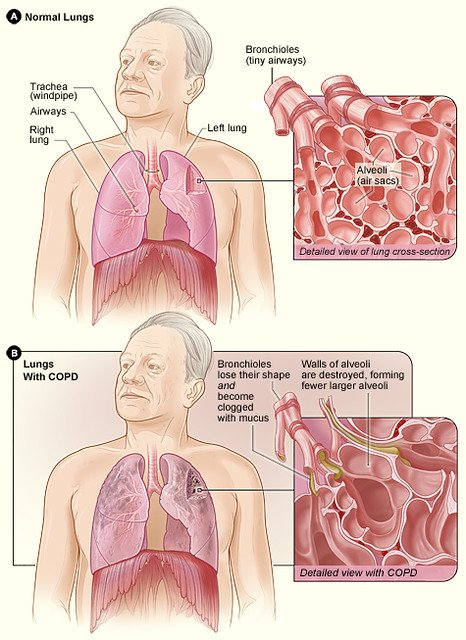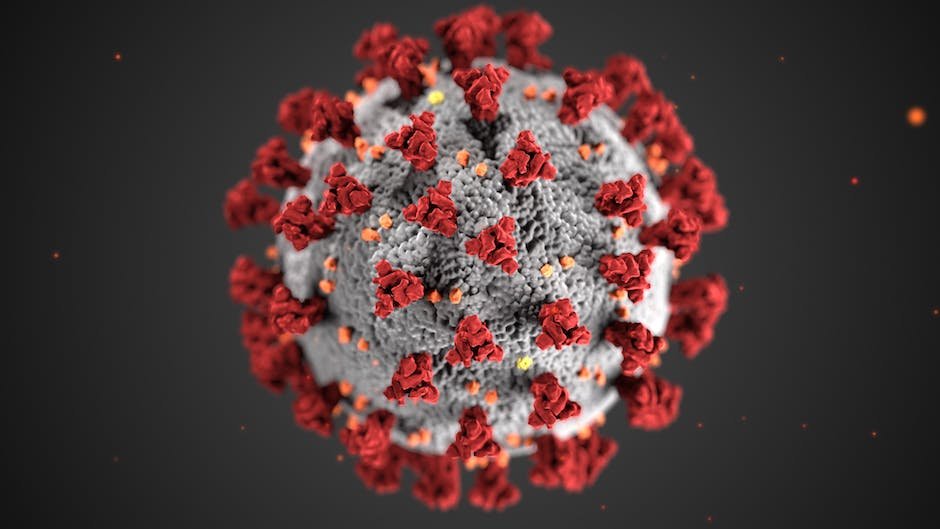Now Reading: The Importance of Respiratory Health in Survival Medicine
-
01
The Importance of Respiratory Health in Survival Medicine

The Importance of Respiratory Health in Survival Medicine
In a world where a persistent cough could escalate into a life-threatening condition, and a simple sneeze might hold the power to bring an entire community to its knees, the significance of respiratory health in the realm of survival medicine cannot be overstated. Breathing, an involuntary function we often take for granted, suddenly becomes the lifeline that separates endurance from demise, vigor from vulnerability. As we navigate through the unpredictable waters of uncertainty, this article delves into the intricacies of respiratory health, highlighting its unparalleled importance in the field of survival medicine. Brace yourself, for we are about to embark on a journey that explores the very essence of survival itself – the breath that sustains life.
Table of Contents
- The Role of Respiratory Health in Survival Situations
- Understanding the Impact of Respiratory Ailments on Overall Well-being
- Crucial Measures to Promote and Maintain Respiratory Health in Survival Medicine
- Identifying Common Respiratory Challenges and Effective Treatment Strategies
- Strategies for Ensuring Optimal Respiratory Health in Challenging Environments
- Q&A
- Future Outlook

The Role of Respiratory Health in Survival Situations
When it comes to surviving in challenging situations, such as emergencies or disasters, the role of respiratory health cannot be underestimated. The ability to breathe properly and maintain lung function is crucial in ensuring our overall well-being and ability to face adversity head-on.
Why is respiratory health important in survival situations?
First and foremost, our respiratory system is responsible for supplying our bodies with the oxygen it needs to function. In a crisis situation, where physical exertion and mental stress are often heightened, a strong respiratory system is essential. Whether it’s to run from danger, perform essential tasks, or remain calm, the ability to take in oxygen efficiently can make a significant difference in our survival.
Factors to consider for maintaining respiratory health:
- Physical fitness: Regular exercise, including cardio and aerobic activities, can strengthen the lungs and improve lung capacity. Staying physically fit can also help reduce the risk of respiratory issues.
- Proper breathing techniques: Learning and practicing proper breathing techniques, such as diaphragmatic breathing or pursed lip breathing, can help optimize lung function and enhance oxygen intake.
- Avoiding smoke and pollutants: Smoke and environmental pollutants can irritate the respiratory system and hinder its proper functioning. In survival situations, it becomes even more critical to stay away from smoke, ash, or any other hazardous airborne particles.
- Protective gear: In certain survival scenarios, wearing appropriate respiratory protection, such as masks or respirators, can prevent inhalation of harmful substances, ensuring the well-being and long-term health of individuals.
Remember, taking care of our respiratory health is not solely about surviving immediate challenges, but also about ensuring long-term well-being in any situation we may face. Prioritizing respiratory health can give us the strength and endurance needed to overcome adversity and secure a greater chance of survival.

Understanding the Impact of Respiratory Ailments on Overall Well-being
Respiratory ailments can have a significant impact on overall well-being, affecting various aspects of life. While these conditions primarily affect the respiratory system, their repercussions extend far beyond just the ability to breathe properly. The physical, emotional, and social well-being of individuals can be profoundly affected by respiratory ailments, underscoring the need to understand their impact and take appropriate measures to manage and mitigate their effects.
Physically, respiratory ailments can lead to a range of challenges. Breathing difficulties can cause fatigue, reduced stamina, and a decreased quality of life. Simple activities that others may take for granted, like climbing stairs or engaging in physical exercise, can become arduous tasks. Persistent coughing, wheezing, and shortness of breath not only cause physical discomfort but can also disrupt sleep, impairing overall energy levels and cognitive function.
Moreover, the emotional well-being of individuals with respiratory ailments may suffer. Chronic respiratory conditions can create feelings of frustration, anxiety, and even depression. The inability to engage in certain activities or participate fully in social events due to breathing difficulties can lead to isolation and a sense of being disconnected from others. The emotional impact of respiratory ailments should not be underestimated, highlighting the importance of providing sufficient support and resources to manage their psychological effects.
- Reduced physical capacity: Respiratory ailments can result in fatigue, reduced stamina, and limited physical activity.
- Disrupted sleep patterns: Constant coughing, wheezing, and shortness of breath can disturb sleep, impacting energy levels and cognitive function.
- Emotional challenges: The frustration, anxiety, and depression that often accompany respiratory ailments can lead to a diminished sense of well-being.
- Social isolation: Breathing difficulties may limit the ability to partake in social activities, leading to feelings of isolation and a sense of disconnection from others.
Understanding the comprehensive impact of respiratory ailments on overall well-being is imperative. By recognizing the physical and emotional challenges individuals face, both healthcare professionals and society as a whole can work towards providing improved support, effective management strategies, and a greater understanding and compassion for those dealing with respiratory ailments.

Crucial Measures to Promote and Maintain Respiratory Health in Survival Medicine
Ensuring proper respiratory health is paramount, especially in survival situations where medical resources may be limited. Here are some essential measures to safeguard and maintain optimal breathing:
- Regular Exercise: Engage in physical activities that promote lung strength and capacity such as brisk walking or deep breathing exercises. This helps improve circulation and keeps the respiratory system functioning efficiently.
- Proper Ventilation: Ensure that your living space has adequate ventilation to avoid accumulation of harmful pollutants and allergens that could irritate the respiratory system. Circulating fresh air is crucial for maintaining healthy lungs.
- Stay Hydrated: Drinking enough water is fundamental to maintain respiratory health. It helps thin mucus secretions, facilitating their expulsion and preventing congestion. Aim to consume at least 8 glasses of water per day.
- Avoid Smoking: Smoking damages the lungs and worsens respiratory conditions. Whether it’s tobacco or other substances, it’s crucial to completely avoid smoking to protect the respiratory system during challenging times.
- Proper Mask Usage: When necessary, wearing masks can help filter out harmful airborne particles, preventing respiratory infections. Ensure masks fit snugly and follow proper hygiene protocols for their use and disposal.
- Manage Stress: High stress levels can negatively impact the respiratory system. Engage in activities such as meditation or relaxation techniques to reduce stress and promote overall well-being.
- Dietary Considerations: Consume a balanced diet rich in vitamins, minerals, and antioxidants to support respiratory health. Foods like citrus fruits, leafy greens, and turmeric possess properties that can boost lung function and reduce inflammation.
By implementing these crucial measures, you can prioritize your respiratory health even in challenging survival situations where access to advanced medical care may be limited.

Identifying Common Respiratory Challenges and Effective Treatment Strategies
Understanding Various Respiratory Challenges:
Respiratory challenges are common health issues that affect the respiratory system, causing discomfort and impairing our breathing. Whether it’s a persistent cough, shortness of breath, or frequent chest congestion, identifying these challenges can help us address them effectively.
- Asthma: A chronic condition characterized by inflammation and narrowing of the airways, leading to wheezing, coughing, and difficulty breathing. Triggers can include allergies, environmental factors, or exercise.
- Chronic Obstructive Pulmonary Disease (COPD): A progressive lung disease that obstructs airflow, leading to breathing difficulties. It mainly includes chronic bronchitis and emphysema, often caused by smoking or long-term exposure to irritants.
- Pneumonia: An infection that inflames the air sacs in one or both lungs, resulting in cough, fever, chills, and difficulty breathing. It can be caused by bacteria, viruses, or fungi.
Effective Treatment Strategies:
When it comes to addressing respiratory challenges, a variety of effective treatment strategies exist. These can vary depending on the specific condition and severity, but here are a few commonly employed approaches:
- Medication: Pharmaceutical interventions, such as bronchodilators, inhaled corticosteroids, or antibiotics in the case of infections, can help manage and alleviate symptoms.
- Lifestyle Changes: Adopting a healthy lifestyle by maintaining a balanced diet, engaging in regular exercise, quitting smoking, and reducing exposure to airborne irritants can significantly improve respiratory health.
- Therapies: For certain respiratory challenges, pulmonary rehabilitation programs, oxygen therapy, or respiratory physiotherapy may be recommended to improve lung function and enhance overall well-being.
Strategies for Ensuring Optimal Respiratory Health in Challenging Environments
When it comes to maintaining respiratory health in challenging environments, it is vital to implement effective strategies. By taking proactive measures, you can safeguard your lungs and ensure optimal respiratory well-being.
1. Proper Protective Gear: In challenging environments, the first line of defense is wearing appropriate protective gear. Ensure that you have access to N95 masks or respirators, which can filter out harmful particles and pollutants.
2. Regular Exercise and Deep Breathing: Engaging in regular exercise not only strengthens your overall health but also enhances your lung capacity. Incorporating deep breathing exercises, such as diaphragmatic breathing or pursed lip breathing, can further improve lung function.
3. Indoor Air Quality Maintenance: Since we spend a significant amount of time indoors, it’s crucial to maintain good air quality. This can be achieved by using air purifiers, keeping windows open for ventilation, and avoiding the use of harmful cleaning chemicals.
Q&A
Why is respiratory health important in survival medicine?
Respiratory health is crucial in survival medicine as it ensures our bodies receive adequate oxygen for optimal functioning, especially during physically demanding or stressful situations.
How does maintaining good respiratory health contribute to survival skills?
Maintaining good respiratory health improves endurance, reduces the risk of respiratory infections, and enhances overall physical performance, enabling individuals to effectively navigate survival challenges.
What are some simple techniques to promote respiratory health in survival situations?
Some simple techniques to promote respiratory health in survival situations include deep breathing exercises, keeping airways clear of debris, using proper protective masks, and practicing good hygiene to reduce the risk of respiratory illnesses.
Why is it important to prioritize respiratory health in long-term survival scenarios?
In long-term survival scenarios, prioritizing respiratory health is crucial as untreated respiratory conditions can worsen over time, leading to chronic illnesses and significantly impacting an individual’s ability to function and survive.
What are the potential dangers to respiratory health in survival situations?
Potential dangers to respiratory health in survival situations include exposure to harmful pollutants, smoke inhalation, dust storms, extreme weather conditions, and the risk of respiratory infections due to poor hygiene practices.
How can individuals improve their respiratory health before a survival situation?
Individuals can improve their respiratory health before a survival situation by exercising regularly, avoiding smoking or secondhand smoke, using air purifiers indoors, and practicing deep breathing exercises to strengthen lung capacity.
What emergency measures should be taken for respiratory distress in survival settings?
In respiratory distress situations during survival settings, it is important to ensure the airway is clear, administer rescue breaths or perform CPR if necessary, and seek medical assistance as soon as possible.
What are some natural remedies or herbs that can promote respiratory health in survival situations?
Some natural remedies or herbs that can promote respiratory health in survival situations include eucalyptus leaves for clearing airways, garlic for its antimicrobial properties, and peppermint for its soothing effect on the respiratory system. However, it is important to seek medical advice before using any herbal remedies.
What long-term effects can poor respiratory health have on overall survivability?
Poor respiratory health can have detrimental long-term effects on overall survivability, including decreased physical endurance, increased susceptibility to respiratory infections, and a higher risk of developing chronic respiratory conditions that can severely hinder survival capabilities.
Future Outlook
In the intricate ballet of life, we often take our breath for granted, letting it shimmer through our bodies, silently carrying the rhythm that fuels our every step. But in the realm of survival, where adversity lurks around every corner, the true value of our respiratory health becomes an unyielding beacon of hope.
As the sun sets on our exploration of the importance of respiratory health in survival medicine, we are left with a newfound awe for the miraculous symphony that unfolds within our chests. We began this journey seeking enlightenment, seeking to unravel the mysteries of our breath and its profound impact on our ability to endure.
Breathing, the essence of life, transcends mere sustenance. It is the ultimate survival weapon, the force that carries us through treacherous terrains, overpowering storms, and haunting nights. Within its delicate balance lies the resilience to traverse the harshest landscapes, both physically and metaphorically.
The human respiratory system, a marvel of craftsmanship, is a testament to the tenacity of evolution itself. It is the sentinel, the guardian of life, continuously working in harmonious partnership with our existence. From the symmetrical dance of the lungs to the capillaries’ tender embrace, every element plays a crucial role in our ability to adapt, to fight, to heal.
But beyond the simplicity of inhaling and exhaling lies a world of knowledge waiting to be embraced. We have uncovered the secret language of breath, discovering its role in diagnosing and treating life-threatening conditions. We have learned to listen, to decode the whispers of our respiratory system, for they reveal tales of affliction, resilience, and hope.
In our pursuit of survival, we must cherish our respiratory health as an essential pillar of preparedness. Like the heroic firefighters quelling the flames, let us arm ourselves with knowledge, well-equipped with the tools required to safeguard the sanctity of our breath. Because in the uncertain wilderness of survival, it is our respiratory health that stands as the bridge between oblivion and triumph.
May this exploration serve as a gentle awakening, a reminder that our breath not only sustains us but empowers us to navigate the darkest realms. Just as we breathe life into our stories, our art, and our passions, let us pledge to honor and safeguard our respiratory health, cherishing the indomitable spirit it bestows upon us.
As we bid farewell to these words, let the importance of respiratory health echo within your heart, forging a renewed commitment to prioritize the breath that sustains your very existence. For in the dance of survival, where odds are stacked against you, it is your breath that will guide you, your breath that will carry you through every chapter yet to come.
As an affiliate, my content may feature links to products I personally use and recommend. By taking action, like subscribing or making a purchase, you’ll be supporting my work and fueling my taco cravings at the same time. Win-win, right?
Want to read more? Check out our Affiliate Disclosure page.





